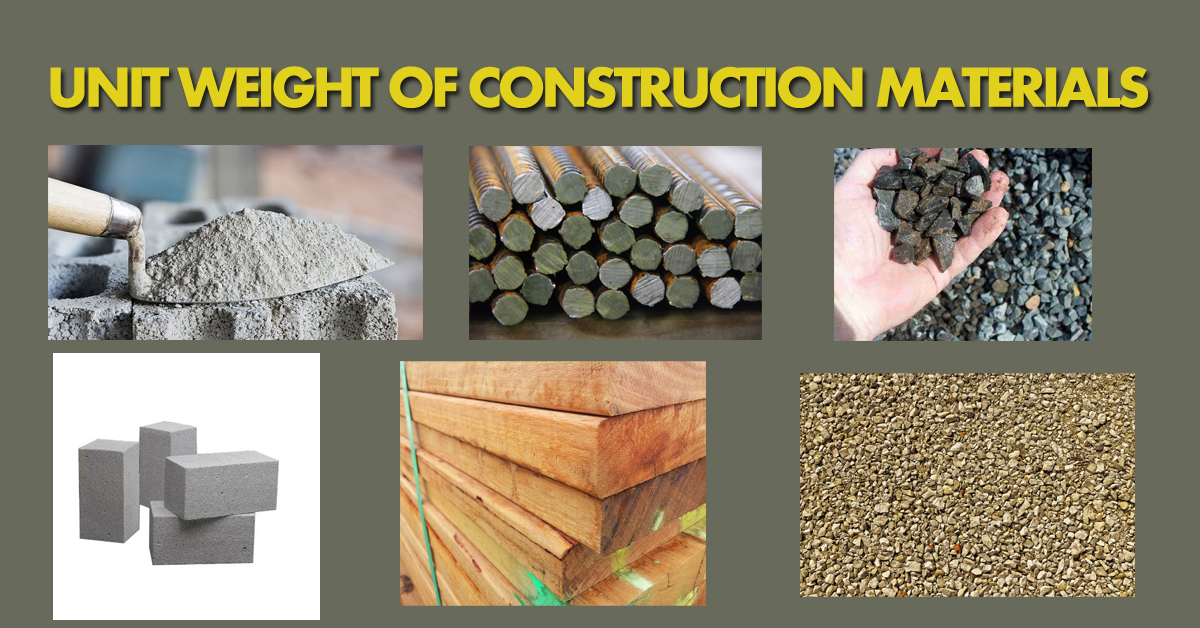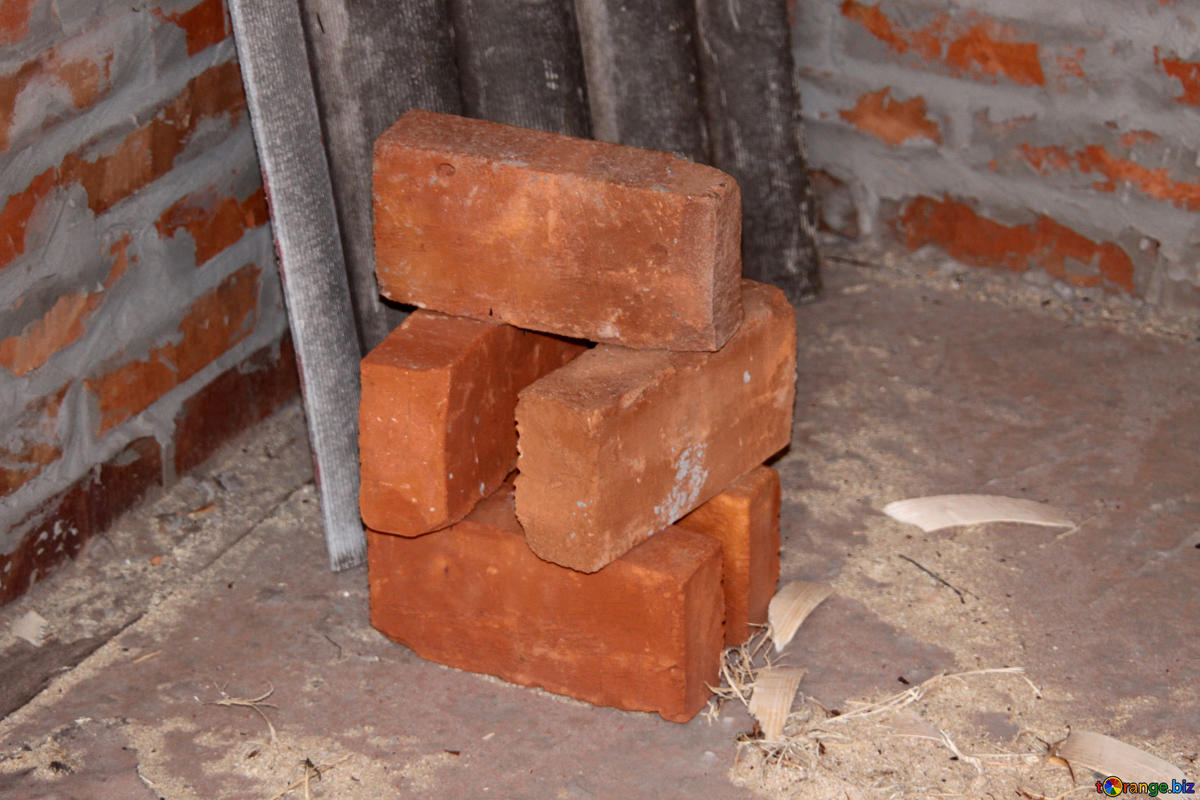When it comes to constructing a building, understanding the unit weight of building materials is crucial for both architects and engineers. This knowledge helps in designing safe structures, estimating material quantities, and ensuring compliance with construction codes. In this guide, we’ll explore the unit weight of different construction materials and their significance.
What is Unit Weight?
Unit weight, also known as specific weight, refers to the weight per unit volume of a material. It is usually expressed in kN/m³ (kilonewtons per cubic meter) or kg/m³ (kilograms per cubic meter).
Unit weight helps in:
- Determining material quantities for construction.
- Structural design calculations, ensuring safety and stability.
- Assessing load-bearing capacities of foundations and beams.
Why is Unit Weight Important in Construction?
The unit weight of building materials affects:
- Structural Load: Heavier materials contribute more to the overall load of the building, which affects foundation design.
- Material Estimation: Accurate knowledge of material density helps in determining the quantity of materials needed for a project.
- Cost Estimation: Heavier materials may increase transportation and labor costs.
Unit Weight of Construction Materials – Cement, Steel, Concrete, Sand, RCC, etc.
These are the unit weight of different construction materials which are commonly used at the site such as cement, steel, concrete sand, RCC, etc. are as follows:
| SL. NO. | MATERIAL | UNIT WEIGHT (kN/m3) | UNIT WEIGHT (kg/m3) |
|---|---|---|---|
| 1. | Cement | 14.4 kN/m3 | 1440 kg/m3 |
| 2. | Steel | 78.5 kN/m3 | 7850 kg/m3 |
| 3. | Sand | ||
| (a) Dry | 16 kN/m3 | 1600 kg/m3 | |
| (b) River | 17.6 to 20 kN/m3 | 1760 to 2000 kg/m3 | |
| 4. | Stone (Basalt) | 28.5 to 29.6 kN/m3 | 2850 to 2960 kg/m3 |
| 5. | Cement Concrete (Plain) | 24 kN/m3 | 2400 kg/m3 |
| 6. | Cement Concrete (Reinforced) (RCC) | 25 kN/m3 | 2500 kg/m3 |
| 7. | Water | 9.81 kN/m3 | 1000 kg/m3 |
| 8. | Bricks | 16 to 19.2 kN/m3 | 1600 to 1920 kg/m3 |
| 9. | Brick Masonry | 19.2 kN/m3 | 1920 kg/m3 |
| 10. | Soil (damp) | 17.6 kN/m3 | 1760 kg/m3 |
| 11. | Cement Concrete Block (Solid) | 18 kN/m3 | 1800 kg/m3 |
| 12. | Cement mortar | 20.8 kN/m3 | 2080 kg/m3 |
| 13. | Lime Mortar | 17.6 kN/m3 | 1760 kg/m3 |
| 14. | Lime | 6.4 kN/m3 | 640 kg/m3 |
| 15. | Glass | 25.3 kN/m3 | 2530 kg/m3 |
| 16. | Bitumen | 10.4 kN/m3 | 1040 kg/m3 |
| 17. | A.C. Sheet Corrugated | 0.16 kN/m3 | 16 kg/m2 |
| 18. | Granite Stone | 24.6 to 28 kN/m3 | 2460 to 2800 kg/m3 |
| 19. | Marble Stone | 26.2 kN/m3 | 2620 kg/m3 |
| 20. | Sal Wood | 9.9 kN/m3 | 990 kg/m3 |
| 21. | Teak Wood | 6.7 to 8.3 kN/m3 | 670 to 830 kg/m3 |
| 22. | Timber (Mango) | 6.5 kN/m3 | 650 kg/m3 |
| 23. | Plastics | 12.5 kN/m3 | 1250 kg/m3 |
| 24. | Ashes | 6.5 kN/m3 | 650 kg/m3 |
| 25. | Rubber | 13 kN/m3 | 1300 kg/m3 |
| 26. | Chalk | 21 kN/m3 | 2100 kg/m3 |
Factors Affecting the Unit Weight of Materials
- Moisture Content: Water absorption can increase the unit weight of materials like sand, gravel, and soil.
- Compaction: Materials like soil and aggregates can have varying unit weights depending on their level of compaction.
- Material Composition: Natural variations in materials like timber or stone can lead to slight differences in unit weight.
- Density of Reinforcement: In reinforced concrete, the presence of steel bars increases the unit weight compared to plain concrete.
Applications of Unit Weight in Construction
- Structural Design: Architects and engineers use unit weight to determine the total load on beams, columns, and foundations.
- Quantity Estimation: When ordering materials like concrete, cement, or steel, contractors rely on unit weight to calculate the volume required.
- Transportation Planning: Knowing the unit weight of materials helps in optimizing transportation logistics and costs.
- Costing and Budgeting: Unit weight is a key factor in determining the total material cost for a project.
Conclusion
Understanding the unit weight of building materials is essential for anyone involved in construction. From load-bearing calculations to estimating material quantities and ensuring structural safety, unit weight plays a pivotal role in every phase of a project.
For construction professionals, having a handy reference for the unit weight of common materials can simplify design, reduce errors, and save costs. Keeping this information at your fingertips ensures your projects run smoothly and efficiently.
Frequently Asked Questions (FAQs)
Q1: How do I calculate the weight of a specific volume of material?
To calculate the weight of a material, you can use the formula:
Weight = Volume × Unit Weight
For example, to find the weight of 2 cubic meters of concrete (with a unit weight of 24 kN/m³):
Weight = 2 m³ × 24 kN/m³ = 48 kN
Q2: What is the difference between unit weight and density?
Density is mass per unit volume, while unit weight is weight per unit volume. The difference arises because weight is the force exerted by gravity on a mass, while density is a scalar property.
Q3: Does the unit weight of concrete change with time?
Yes, the unit weight of concrete can slightly change over time due to water loss (drying out), but it generally remains consistent once fully cured.




Unit weight of construction materials.